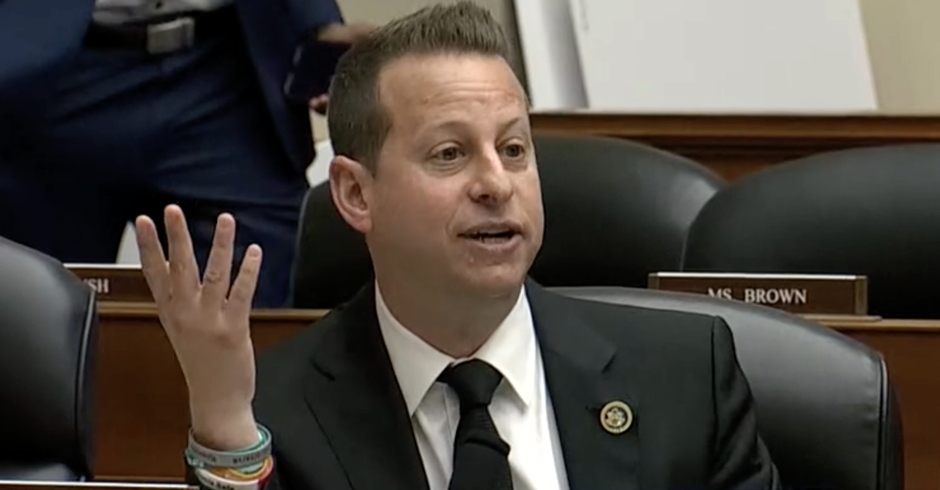Law, Unwrapped: Analysis Of Today’s Prop 8 Decision That Is True Genius
Editor’s note: John Culhane will be available for questions on today’s Prop 8 decision. If your have any, leave them in the comments section. Perhaps he’ll surprise us and be available for a live chat this week!
Today, the Ninth Circuit court of appeals handed down a long, thoughtful – but exceedingly narrow –  ruling upholding the decision of Judge Vaughn Walker that Proposition 8 is unconstitutional.
The decision, Perry v. Brown, is worth exploring in some detail, but here’s the bottom line: If this court’s decision is ultimately upheld by the U.S. Supreme Court under the same legal theory, the result would be limited to California. Prop 8 would be thrown out and same-sex couples would be able to resume marrying there – but nowhere else.  Why so narrow? Once again, it’s all about trying to get the vote of Justice Anthony Kennedy.
Let’s deal with the non-constitutional issues first. (I’ll try to be brief so we can get to the good stuff.) The crazy attempt to have Judge Walker disqualified because he’s a gay man in a long-term relationship received the backhand it deserved. The court telegraphed its view of this position during oral argument. Judge Smith (who dissented from today’s decision on the central constitutional issue) couldn’t see any difference between booting a gay judge in a relationship and disqualifying a straight, married judge from deciding the case if he had an interest in maintaining “the definition of marriage as it applies to his marriage.†And should judges married to someone of a different race not have been able to rule on anti-miscegenation laws? No one expected this argument to have any traction, and it didn’t. If the Prop 8 proponents are smart, they will leave this inane argument out of their expected appeal to the Supreme Court.
The other question that had to be answered before the appellate court could reach the merits of the dispute was whether the Prop 8 proponents had standing to appeal. I’ve written about this issue already, and won’t rehash all the details here. In sum, the appellate court had asked the California Supreme Court to weigh in on whether the proponents were proper parties to appeal in cases where the state’s own officials (the Governor and the Attorney General) declined to do so. That court said, essentially, that the proponents could stand in the shoes of the state’s officials, so that someone would be able to defend the measure. Given California’s initiative process, the proponents were “the people†defending the state’s interests.
Once that opinion was handed down, today’s holding by the federal court on the standing issue was a virtual certainty. I’m still not wholly convinced the Supreme Court will find standing in this case, but the odds are very good that it will; it was smart of the California court to base standing on its interpretation of California law, rather than on the more nebulous constitutional standards under which the Supreme Court has decided this question. The high court will likely leave the state court alone.
So the attempts by both sides to get this case tossed out without reaching the merits were brushed aside, seemingly leaving the central questions of Prop 8 to be decided: (1) Does that measure violate the federal guarantees of equality? (2) Does Prop 8 violate the fundamental right of same-sex couples to marry?
But I say “seemingly†because the court adroitly sidestepped the hard questions of whether a state can, consistent with guarantees of constitution rights, prohibit same-sex couples from marrying.  Instead, it asked and answered the following question:
May a minority group be “targeted for the deprivation of an existing right without a legitimate reason[?]â€(emphasis added)
Recall that, before Prop 8 was passed, the California Supreme Court had held that gays and lesbians had a right, under the California Constitution, to marry. So Prop 8 “had one effect only…to take away from same-sex couples the right be granted marriage licenses and thus legally to use the designation of ‘marriage[.]’â€
With the question thus narrowly framed, the court planted the rationale for its decision in the soil of a 1996 Supreme Court case, Romer v. Evans. In that case, the Court (in an opinion by Justice Kennedy), held that Amendment 2 to the Colorado state constitution violated the federal constitution. That Amendment removed existing anti-discrimination protection in favor of gays and lesbians, and then went further by forbidding the enactment of any news laws protecting LGBT citizens. This kind of law was just weird, as the Romer Court said in so many words: “Laws singling out a certain class of citizens for disfavored legal status or general hardships are rare.† And because they’re so rare, laws of this type give rise to an inference that they’re passed only because of animus (read: dislike) toward the targeted group.
Throughout the long decision in Perry, Judge Reinhardt referred again and again to Romer, which is a case decided under the “equal protection†clause of the Fourteenth Amendment, but an odd one because Romer doesn’t depend on the status of the underlying right – the right to an anti-discrimination law in favor of a particular group isn’t a constitutional right, itself – but, again, on the decision of the state (acting through the voters) to take that right away.
So, too, with Prop 8, according to Judge Reinhardt. Taking away a right, especially by passing a constitutional amendment, without a good reason is the most basic denial of equal protection, so there’s no need to get into the deeper questions of whether there’s a fundamental right for same-sex couples to marry, or whether equal protection is denied in states that refuse to recognize same-sex marriages in the first place!
If you’re thinking that this decision renders Judge Walker’s long trial and his subsequent decision largely irrelevant, you’re right. But the decision is genius. Here’s why.
First, by using the logic of Romer v. Evans, the court avoided the tricky question whether laws singling people out for different treatment based on sexual orientation should receive a heightened level of scrutiny. No federal appellate court has applied this heightened level, which is used for cases involving race and gender, among other things. Romer, by contrast, required only that the law have a “rational basis,†but applied that usually deferential test in a more searching way than usual, given that it imposed a legal disability on a class of people.
And applying that standard, Judge Reinhardt, tracking Romer, saw no good reason for Prop 8.  The primary reasons given for Prop 8 – that it encouraged child-rearing and responsible procreation – were revealed as shams. Same-sex couples were and still are parents with the same rights as opposite-sex couples, both before and after Prop 8. In passing Prop 8, the voters did nothing more than enshrine their prejudices against gays and lesbians into law, removing the dignity and status of the word “marriage†without any legitimate reason for doing so.
But the true genius of Judge Reinhardt’s approach is in the appeal to Justice Kennedy, the swing vote needed to affirm the appellate court’s holding. By giving the Supreme Court a narrower ground on which to affirm – and by using Kennedy’s own logic and language from Romer – the appellate court just gave the Supremes a way to avoid deciding the global issue of marriage equality – at least for now. They have only to decide that once the right to marry exists (and perhaps especially if it exists as a matter of state constitutional law), then a pretty damn good reason is needed to take it away.
Will this work? Who knows? But the odds of success just went way up – if only for Californians. The rest of us would benefit from the demise of Prop 8, though, too. About one in nine Americans lives in California. If the tipping point wasn’t already reached with the marriage equality victory in New York, a win in California should pretty much seal the deal.
Image, top: AFER attorney Ted Olson (left) at a press conference discussing today’s decision. Image by Edward Lawrence via Twitter.
 Were he born 10,000 years ago, John Culhane would not have survived to adulthood; he has no useful, practical skills. He is a law professor who writes about various and sundry topics, including: disaster compensation; tort law; public health law; literature; science; sports; his own personal life (when he can bear the humanity); and, especially, LGBT rights and issues. He teaches at the Widener University School of Law and is a Senior Fellow at the Thomas Jefferson School of Population Health.
Were he born 10,000 years ago, John Culhane would not have survived to adulthood; he has no useful, practical skills. He is a law professor who writes about various and sundry topics, including: disaster compensation; tort law; public health law; literature; science; sports; his own personal life (when he can bear the humanity); and, especially, LGBT rights and issues. He teaches at the Widener University School of Law and is a Senior Fellow at the Thomas Jefferson School of Population Health.
He is also a contributor to Slate Magazine, and writes his own eclectic blog. You can follow him on Facebook and Twitter if you’re blessed with lots of time.
John Culhane lives in the Powelton Village area of Philadelphia with his partner David and their twin daughters, Courtnee and Alexa. Each month, he awaits the third Saturday evening for the neighborhood Wine Club gathering.

Enjoy this piece?
… then let us make a small request. The New Civil Rights Movement depends on readers like you to meet our ongoing expenses and continue producing quality progressive journalism. Three Silicon Valley giants consume 70 percent of all online advertising dollars, so we need your help to continue doing what we do.
NCRM is independent. You won’t find mainstream media bias here. From unflinching coverage of religious extremism, to spotlighting efforts to roll back our rights, NCRM continues to speak truth to power. America needs independent voices like NCRM to be sure no one is forgotten.
Every reader contribution, whatever the amount, makes a tremendous difference. Help ensure NCRM remains independent long into the future. Support progressive journalism with a one-time contribution to NCRM, or click here to become a subscriber. Thank you. Click here to donate by check.
 |






















